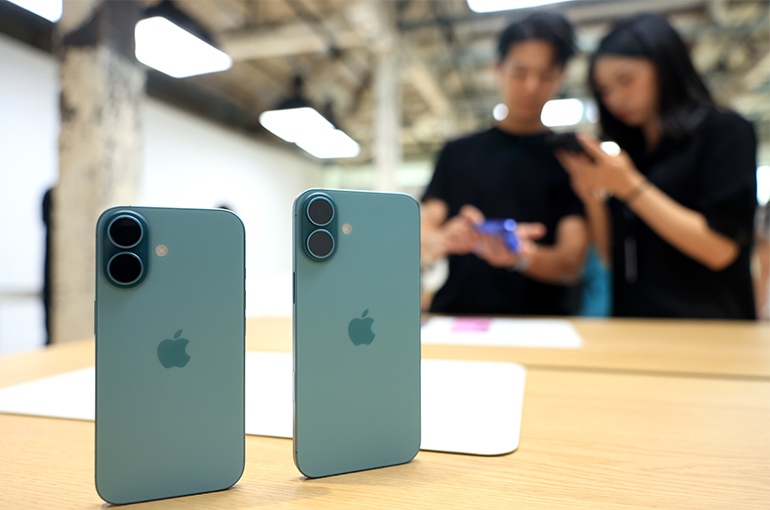 Apple Cuts iPhone 16 Prices for China's Double 11 Shopping Gala
Apple Cuts iPhone 16 Prices for China's Double 11 Shopping Gala(Yicai) Oct. 22 -- Apple has dropped the price of the iPhone 16 series sold through its flagship Tmall store in China ahead of the country’s annual Double 11 shopping festival and just over a month after its release.
The US tech giant has been discounting the new iPhone on the Tmall Apple Store, its only official flagship store on an e-commerce platform, by as much as CNY1,600 (USD225) since late yesterday. Each model was lowered by at least CNY500 (USD70). Additionally, Apple is offering credit of as much as CNY1,100 on any iPhone trade-in.
The price cut does not extend to Apple’s brick-and mortar stores, an assistant at one in Shenzhen told Yicai on Oct. 20. But to encourage people to upgrade their handsets, they can trade in their iPhone 12 or later models for discounts ranging from CNY1,000 to CNY6,100 (USD855) when buying the iPhone 16 or iPhone 16 Pro, the person added.
Apple's decision to cut the prices on its new iPhone series so soon after release is noteworthy, as the company rarely reduces them so quickly, particularly through its official channels. It was four months before the price of the iPhone 15 series fell last year, with a salesperson saying at the time that this kind of “price cut has rarely been done.”
Before Apple cut the cost of an iPhone 16 on its Tmall store, other online vendors had already started to lower it. On Sept. 19, the handset was priced at CNY5,399 on Pinduoduo, down CNY600 compared with Apple’s website.
The Apple store on JD.Com has launched AppleCare discounts for the iPhone 16, iPhone 16 Plus, and iPhone 16 Pro Max of CNY600, CNY600, and CNY800, respectively. Taobao also offers discounts of between CNY600 and CNY650 for the iPhone 16 Pro.
Launched last month, the iPhone 16 initially saw strong sales in the Chinese market, with a 20 percent jump in the first three weeks compared with that of the iPhone 15 a year earlier, according to research firm Counterpoint. But in the past three weeks, year-on-year sales of all iPhone models have dipped by 2 percent due to a drop in purchases of older models and growing competition from Huawei Technologies' Mate and Pure handset series.
The lack of artificial intelligence services, weaker consumer spending, and stiffer competition are all challenges Apple faces in the Chinese market, Zhou Lexuan, an analyst at market research firm Canalys, said to Yicai.
Editor: Martin Kadiev